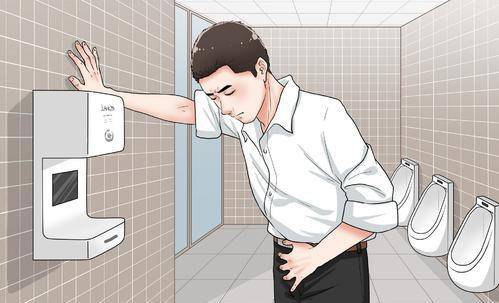Generally, everyone experiences nocturia at night, typically around 1-2 times, which is considered within the normal range. Men may have slightly more occurrences, possibly more than twice in one night.
Frequent urination can affect a person’s sleep quality. Most people, upon hearing this term, might immediately think it indicates kidney deficiency. However, aside from this reason, there could be other factors leading to increased nocturia. Let’s first examine what constitutes frequent nocturia.
Nocturia refers to the need to wake up to urinate during the night, excluding the usual morning urination or pre-sleep urination.
Frequent nocturia may result from increased urination frequency, larger urine volume, or both. The following 3 criteria can be considered:
Nocturnal urine volume/weight greater than 10 consecutive days with more than 2 instances of waking up to urinate, nighttime urine volume exceeding daytime, or exceeding 500 milliliters (approximately a water bottle)
Chronic kidney disease
The human kidneys are mainly located on both sides of the lower abdomen and their primary function is to produce urine. When blood passes through the kidneys, they filter out excess water and reabsorb it through the renal tubules, eventually turning it into urine. If any abnormalities occur during this process or if the renal tubules are damaged, urine cannot be reabsorbed, leading to increased urine output. This is a manifestation of chronic kidney disease, especially when nighttime urination frequency increases to 3-5 times, possibly due to issues with the renal tubules. Psychological factors can also contribute to increased nocturia. Excessive tension and anxiety can create a constant urge to urinate during sleep. If this is the case, besides eliminating negative emotions, improving the situation of excessive tension can help prevent increased nocturia and avoid disrupting normal sleep patterns. Diabetes is a chronic metabolic disease that can affect kidney function, leading patients to feel thirsty and dry, resulting in increased water intake and subsequently, increased urination.
As blood sugar levels rise, the frequency of urination also increases significantly, causing water loss in the body, resulting in dry mouth. This creates a vicious cycle, with daily urine output exceeding 5000 milliliters.
Bladder diseases
Frequent nocturia may also be related to bladder diseases. The bladder is a crucial organ for storing urine, and if it is damaged, the capacity to store urine decreases, leading to increased urine output. Common conditions like cystitis, bladder tumors, etc., necessitate prompt medical examination to avoid missing the optimal treatment window. Especially in cases of increased nocturia, it is crucial to understand if there is any association with bladder diseases.
Dietary control
It is advisable to limit salt intake, as it helps maintain kidney hydration. Avoid consuming carbonated drinks and opt for drinking more plain water. Include potassium-rich foods in your diet, such as mushrooms, cabbage, legumes, peanuts, etc.
Control water intake
Try to consume fewer dense or high-water-content foods during dinner time, and limit water intake before bedtime. Avoid strong tea or coffee before sleep.
Self-monitor for diseases
When the body shows signs of abnormality, it is crucial to take them seriously and identify the true cause behind the disease. For diseases that may lead to increased nocturia, remain vigilant and seek timely medical treatment and examination. Occasionally frequent urination may not be concerning, but if it persists for a period, it should be taken seriously.


